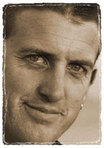How much editing is too much?
 I've read some beautiful fantasy stories written in strange ways. I think that if the story is great, readers care less about odd grammar and minor typos.
I've read some beautiful fantasy stories written in strange ways. I think that if the story is great, readers care less about odd grammar and minor typos.
Surely it's important have a clear voice, but how long should one spend chasing the lost apostrophes in a 650 page epic fantasy novel? Sometimes you need a stray one to fix a wasnt.
It's possible to become obsessed with making the perfect product, but the premise and style will make or break a fantasy book (see Great ideas sell fantasy books). I've spent months editing a manuscript, used a professional editor and a second proofreader and still ended up with typos. Typos in my own books drive me nuts, yet no readers have commented on them (yet! Go on, there's one over there… but you won't find it in the ebook any more).
When I worked on The Riddler's Gift and Second Sight, I became obsessed with editing because there was a traditional print run involved, so there was no opportunity to change the words after publication. In the brand new world of fantasy ebooks, it makes sense to limit the editing to a good final draft and put it into the market to see if the story itself is attractive enough to justify professional copy-editing.
If it starts selling in significant numbers (thousands), the story earns the budget for some obsessing to make a second edition. For self-published or small independent publications, that may well be the point where it gets snapped up by a large commercial publisher anyway. As errors are discovered, the corrections can be incorporated into updates. This strategy of releasing improved editions is quite normal in non-fiction, but is a fairly new idea for novels.
The flaw in this kind of thinking is that as a writer, I can't release a new fantasy novel in the first place until it's as good as I can make it. You will always get my best work because I care too much about the story to let it go to the ball in dirty clothes. But as the price of digital content falls, there is ever greater pressure to leave an inch or two of the ballroom floor unpolished.
What keeps the floor shining is the fact that as more readers and authors switch to digital, the advantage lies with books of high quality: it's the only way to stand out in a market absolutely flooded with content. Your book has to be exceptional, which means applying higher editorial standards than ever before. High-quality ebooks are produced most efficiently by writers who don't need editing in the first place.
I think editing fiction as a discrete job will become obsolete as the industry of agents, publishers, distributors and bookstores collapses around a simple business model: Authors – Amazon – Readers. In this chain, the readers will set the standards. Exceed their expectations for a given price, and you can shoot straight to the top. Due to low prices, exceptional ebooks have the potential to be supersellers. The average ebook contains something like middle-grade English and more than a few typos. Writing significantly above that standard will lift you out of the masses, so edit until you really believe your story is perfect.
May the best writer win.



